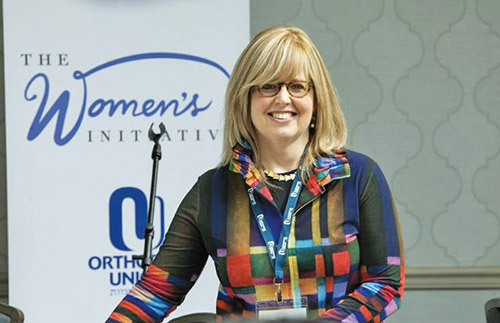
Rebbetzin Dr. Adina Shmidman was once recognized—some may call it celebrity-spotted—on a New York City subway, not by her name, but by a single program she helped develop as director of the OU Department of Women’s Initiatives. “You’re Nach Yomi!” the woman exclaimed. But while Torat Imecha, an app and daily email that delivers Nach Yomi or a parsha lesson every day or week is certainly top-notch, that’s not all she’s famous for.
Shmidman was hired by the Orthodox Union at the establishment of its Women’s Initiative
Department in November 2017. After five years under her direction, the department has been built out extensively, creating not just Torah knowledge and networks for educational enrichment and engagement, educational programs, leadership conferences, professional advancement fellowships and scholars-in-residence programs, but it also has created two notable—and growing—cohorts of Orthodox Jewish women leaders of all ages who are actively impacting their community in more than 40 cities across the U.S. and Israel.
Shmidman grew up in Kew Gardens in Queens, New York and received her first set of degrees, a bachelor’s in psychology and a master’s in school psychology, from Queens College, followed by a master’s in Jewish education from Yeshiva University’s Azrieli School. She then began studying for a doctorate in educational psychology from the City University of New York Graduate Center. While she worked on her dissertation, she accompanied her husband, Rabbi Avraham Shmidman, to serve in the rabbinic post in the 120-family community of Birmingham, Alabama for nine years, and subsequently to Lower Merion, Pennsylvania in the Philadelphia suburbs, where he has been the morah d’asrah of the Lower Merion Synagogue since 2007. Shmidman, in addition to her role at the OU since 2017, is a “working rebbetzin” as well as the community mikvah’s co-chair and a kallah teacher. She also spent 20 years in the classroom, primarily teaching young women at the high school level, and is the mother of four sons.
“All of that is so relevant to the work that I do now, with the OU Women’s Initiative,” she said. “The idea was to create a space for women in the area of Torah, Torah learning and teaching, to provide leadership opportunities, training and support, as well as community engagement, with the overarching vision of building a community of women of different ages, different backgrounds, coming together in these three spaces.”
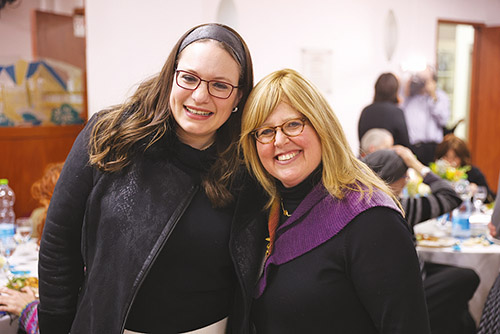
Torah Learning and Teaching, Leadership and Community Engagement
These three spaces—Torah learning, leadership opportunities and community engagement—have been developed in multiple ways over the past several years, with more than a dozen associated programs and initiatives under the department’s banner. A prime example is the aforementioned Torat Imecha initiative, which allows women to sign up for a daily or weekly digital learning opportunity with a vast array of master teachers, offering both a Nach Yomi program, weekly parsha study, or both. The ALIT Summer Beit Midrash, sponsored in the name of Max and Yetty Monderer, a”h, allows women to learn in depth during a virtual summer two-week, six-course experience, with a focus on both providing women access to high-level teachers and highlighting the talent pipeline by providing opportunities for young or emerging speakers to teach. “It’s a unique opportunity to hand talented women a microphone,” Shmidman said.
Similarly, the Nach Shabbat scholar-in-residence program sends high-level female Torah teachers to communities around the country to share their insights and perspectives as well as highlight the Torat Imecha Nach Yomi program.
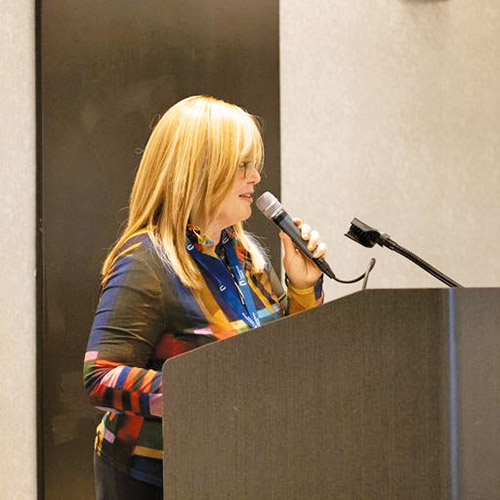
Two Biennial Conferences, Two Cohorts of Leaders
The OU’s powerful interpretation of establishing meaningful leadership opportunities for its community has created two separate tracks for two different types of Jewish woman leader. One is a set of programs for nonprofit lay leaders, CEOs and communal organization heads, while the other is geared toward women who work as rebbetzins, kallah teachers, outreach (kiruv) and education (chinuch) professionals. Both groups are supported by a dedicated conference every other year, the first being the “Leadership Summit,” while the other is the “Understanding Our Communities” conference.
“We need to support our leaders,” Shmidman said “Leaders need investment. The investment is exponential because once we invest in leaders then that comes back to the communities. The question was, who are our leaders, and what are their leadership spaces?”
She explained that once it was established that the breadth and depth of the communal needs could support two different conferences and cohorts, the Women’s Intiative’s first conference was launched in 2019 for lay leadership, drawing heads of shul and yeshiva boards and directors of other types of nonprofits. “The goal was to give them knowledge, networking, nurturing (and noshing!) So take them, raise them, and by raising them and connecting them, we are building communities and also building a community of leaders.”
By the same token, communities are also needful of leadership support and development on what Shmidman referred to as the klei kodesh side. “They’re the ones who are in the spiritual, mentorship leadership space.” While there is a small degree of carryover between the two groups, the two cohorts are primarily distinct from one another, so each conference is run every other year, in order to provide each group a biennial opportunity to refresh and recharge.
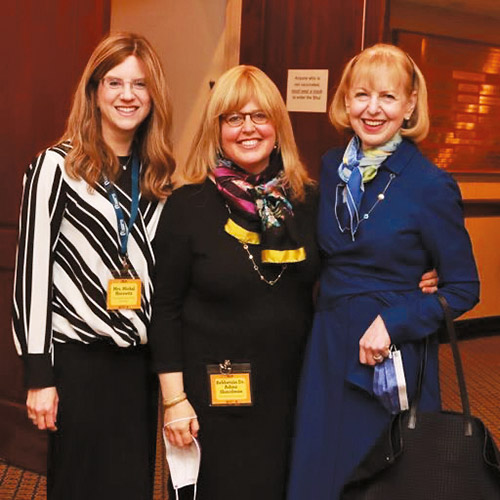
Fellowship Programs and ‘Initiatives and Ideas’
In addition to the conferences, the OU Women’s Initiative is the address for the Foundations of Mental Health Fellowship, an intensive two-month program with two monthly touchpoints during a calendar year, offered to women working in communal leadership roles in the mental health space. This program culminates with the participants enjoying a final seminar immediately preceding the “Understanding Our Communities” conference, allowing the fellows to get to know one another, which helps multiply their skills by developing and nurturing social networks.
Another fellowship-style program, announced but yet to be fully launched by the Women’s Initiative, is called “The Art of Writing Advanced Seminar,” and will assist women Torah teachers in leveling up their writing skills.
The Women’s Initiative also runs “initiatives and ideas” programs, often geared toward the Jewish calendar and specific holidays or times of year, including the recently well-received sefirat Omer program “Counting Toward Sinai” audio series, which this year offered unique perspectives on Shemoneh Esrei from women educators living in the land of Israel in honor of Israel’s 75th anniversary.
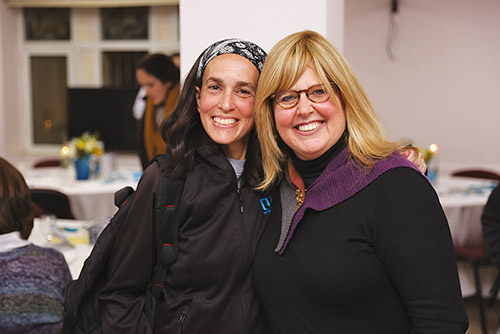
But that’s not all: Among the multiple other programs under the Women’s Initiative banner, the OU Women’s Initiative Challenge Grant provides funds to individual shuls or sisterhood-style organizations that come up with innovative program ideas designed to assist their communities achieve a particular goal, and a “Tehillim 150” program geared toward helping young women at the high school level (and well as all the women participating in the Nach Yomi program) study Tehillim each day for 150 days straight in a meaningful, in-depth and powerful way. Other programs involve professional development seminars for mikvah administrators and attendants, a Rosh Chodesh lunch-and-learn monthly video series and rebbetzin-to-rebbetzin mentoring.
What’s Next?
A member of the initial search committee for Shmidman’s position explained the concept for the OU Women’s Initiative as being a center of innovation, integration and growth for women in the Orthodox community. Has it lived up to the expectations?
It seems like Shmidman is nowhere near done. “There’s a lot going on. We are always thinking of those three areas: Torah, leadership and community engagement. How can we better support communities? How can we invest in leaders? And how can we continue to support Torah and provide spiritual inspiration?
“To me, what’s been so powerful is to see the community build around this. Whether it be the community of Torah learners, the community of leaders, the engagement and the investment, there is a sense of closeness that’s been built despite miles and different spaces and places. And the remarkably diverse hashkafic diversity and age range; there’s such strength in that.”
The Women’s Initiative programs and initiatives are available online and also through its extensive network of hundreds of OU synagogues and with the apps OU Torah and Torat Imecha.
By Elizabeth Kratz










